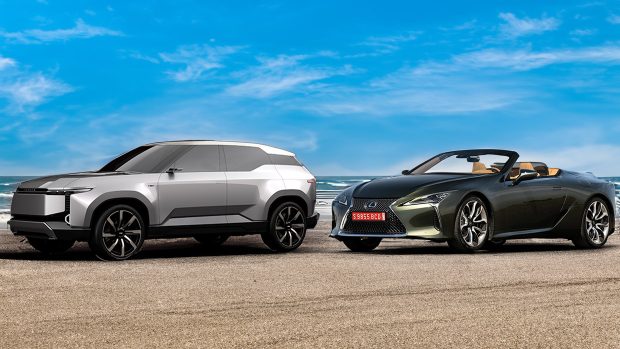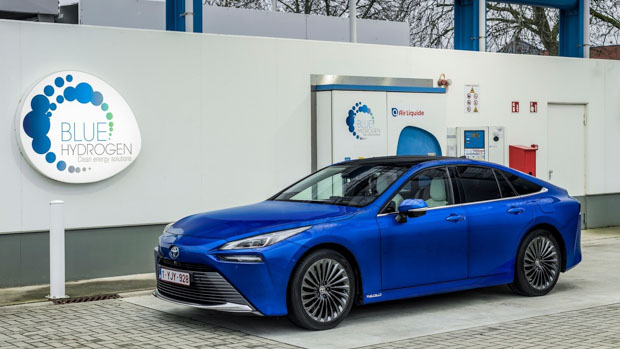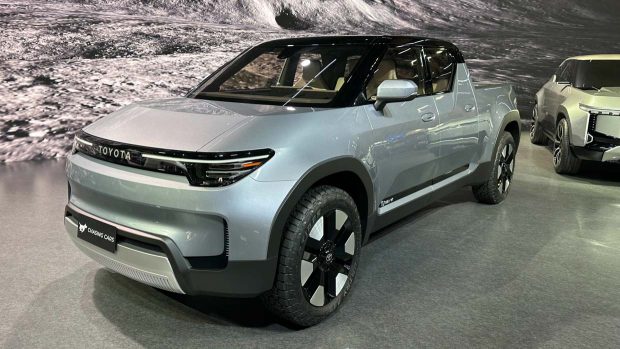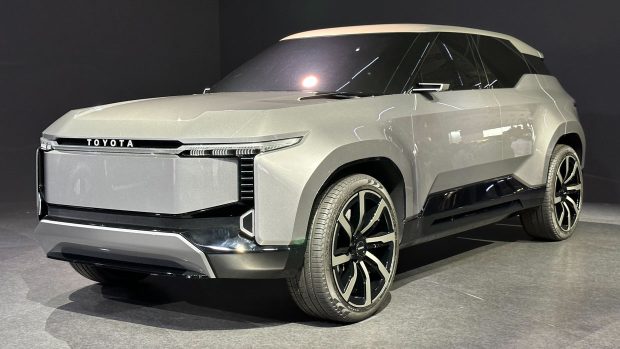-
Car Reviews
- Car News
-
Car Comparisons
Latest comparisons
- Chasing Deals
Two recently-revealed, pure-electric Toyota concept vehicles with production intent use an existing platform rather than Toyota’s forthcoming third-generation EV platform that makes use of gigacasting production techniques.
The two fully-electric Toyota models – the Land Cruiser SE large SUV and the EPU pick-up truck – utilise the TNGA-L platform, the chief engineer of both models revealed to Chasing Cars.
Toyota revealed the two electric models – perhaps its most ambitious and important EV concepts yet – at the 2023 Japan Mobility Show in Tokyo this week. Both are a good chance for an Australian release.
The revelation comes as something of a surprise, confirming that Toyota is simultaneously developing a number of platforms for future EVs with different capability requirements.
As the most premium iteration of the modular Toyota TNGA platform, TNGA-L is more commonly associated with high-end rear-wheel drive (RWD) combustion vehicles sold by Lexus. It is not a dedicated EV platform.
TNGA-L is the platform that underpins the Lexus LC halo coupe and convertible and the Lexus LS flagship sedan – but also the Toyota Mirai hydrogen fuel cell electric vehicle (FCEV).
It’s a platform used by V8s, hybrid six-cylinder cars and hydrogen sedans alike, with the Land Cruiser SE and EPU adding fully-electric power to the mix.
Now, TNGA-L will be called up for duty as the platform that would underpin the Land Cruiser SE and EPU ute, according to the chief engineer of both vehicles, Tsukasa Takahashi.
Speaking with Chasing Cars, Takahashi confirmed the Land Cruiser SE and EPU do not make use of the new third-generation Toyota EV platform utilised by the FT-3E SUV and striking FT-SE sports car also revealed in Tokyo this week.
“Basically, for the two models, we will develop the battery-electric models based on existing models. We call that a multi-pathway platform,” said Mr Takahashi.
When quizzed if the platform was TNGA-L, Takahashi replied, “your idea [TNGA-L] is correct.”
Speaking separately with Chasing Cars, Daisuke Hirose, Toyota’s planning chief for the FT-3E SUV, confirmed that TNGA-L is the key candidate platform for the heavier-duty Land Cruiser SE and EPU.
“What you have suggested [regarding TNGA-L] is true. We are thinking in that direction, though it is not finally decided,” Hirose warned.
Monocoque SUV and pick-up have entered development phase
The chief engineer of the two EVs confirmed that TNGA-L was designed to accommodate a range of powertrain options: petrol-only engines, petrol-electric hybrids, hydrogen fuel cell stacks – and now fully-electric powertrains.
Because TNGA-L is capable of accommodating multiple powertrain types, development of petrol-electric hybrid or even hydrogen fuel-cell versions of the Land Cruiser SE and EPU would be simplified.
Like the Lexus LC and LS and the Toyota Mirai, the Land Cruiser SE and EPU are monocoque vehicles. Takahashi said the basic idea was similar to the modern-day Land Rover Defender, a monocoque SUV with strong off-roading capability.
The two models have been in the design phase for a considerable period, and they entered a more serious development phase six months ago, when a chief engineer was appointed.
Takahashi said it was too early to provide battery details for the Land Cruiser SE and EPU, but Chasing Cars understands there would be compatibility between the models and new-generation Toyota batteries offering 800-volt charging and near-1000km cruising range.
“There is nothing official [in terms of range claims],” Takahashi said, but he agreed with our suggestion that a generously long driving range would make sense, given the requirements of large SUV and pick-up truck buyers.
Latest news
About Chasing cars
Chasing Cars reviews are 100% independent.
Because we are powered by Budget Direct Insurance, we don’t receive advertising or sales revenue from car manufacturers.
We’re truly independent – giving you Australia’s best car reviews.



